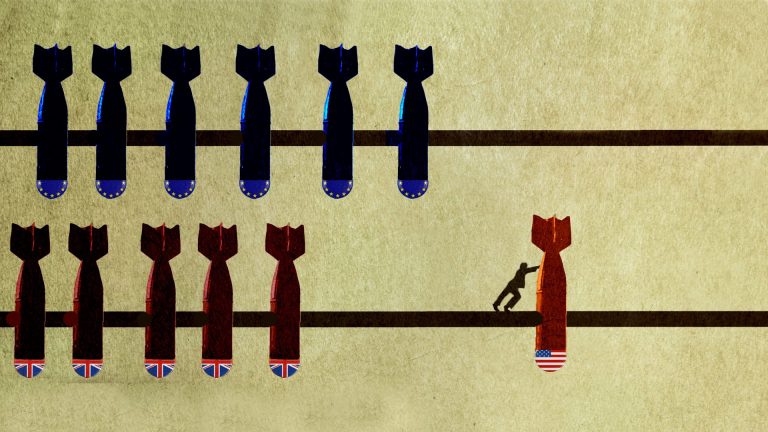After weeks of leaks, Jeremy Hunt’s autumn statement held few surprises. Nor is it particularly shocking that the chancellor will attempt to keep Brexit’s impact on the UK economy out of the debate in the days to come.
“No amount of personal or business tax cuts will undo the damage that Brexit has done – and continues to do – to our economy,” said the European Movement UK after Hunt’s speech. “The true extent of the economic damage of Brexit will take 15 years to fully materialise. The National Institute of Economic and Social Research predicts that by 2035 the economy will be between 5-6% smaller than it would be if we had not left the European Union. This means that if it were not for Brexit our economy would be much stronger than the economic picture presented by the chancellor in the autumn statement.”
According to the group, Brexit is already costing each person in the UK about £850 a year and the situation is only going to worsen. The cost is set to reach £2300 per person, per year over the next decade. In a report released last week, the National Institute of Economic and Social Research (NIESR) estimated that this will increase to 5 to 6% of GDP a year (around £115-135 billion at today’s prices) by 2035.
“Britain cannot afford Brexit. Budget tinkering cannot hide that elephant in the room,” said Sir Nick Harvey, CEO of European Movement UK. He added: “If Jeremy Hunt wants to set the UK back on a path to growth and put more money in British pockets, he should announce a clear medium-term plan to get the UK back in the single market and invite other parties to sign up to it. That plan would take time to deliver. But it would start to restore investor confidence overnight.”
Last week, the European Movement UK published its Business Impact Report detailing the post-Brexit experiences of over 1700 businesses. Just over 93% of businesses surveyed said that Brexit has affected them negatively, while 95.5% said that they would benefit from regaining access to the EU Single Market.
According to the EM UK, if the UK was still a member of the European Union today’s autumn statement could have addressed the cost-of-living crisis, the impact of Covid on our economy and the inflation crisis. Instead, there was a Brexit-shaped elephant in the room.










